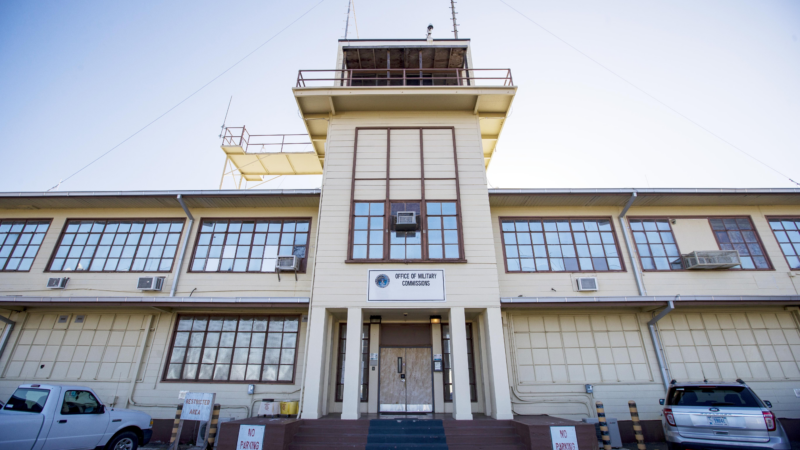Three migrants win temporary block from potential transfer to Guantanamo
A federal court in New Mexico preemptively blocked the Trump administration from sending three Venezuelan men to Guantanamo Bay. It is the first legal hurdle thrown at the Trump administration as it seeks to send thousands of migrants to a detention facility on the naval base near Cuba.
Three Venezuelan men in the custody of federal immigration officials in New Mexico submitted a motion seeking a temporary restraining order to block their transfer to Guantanamo Bay because they “fit precisely the profile” of people who had already been transferred and feared such a transfer would be imminent, according to court documents.
New Mexico Judge Kenneth Gonzales approved their motion Sunday night.
Trump’s plan to send 30,000 migrants to the U.S. naval base at Guantanamo Bay, facilitated by a memo, is likely to face additional legal, logistical, and political challenges.
The U.S. flew the first migrants to a temporary housing facility there last week, and U.S. officials said they would be held separately from the U.S. military prison, which houses suspected foreign terrorists, including alleged 9/11 mastermind Khalid Sheikh Mohammed.
The Homeland Security Department and Immigrations and Customs Enforcement did not respond to requests for comment on the temporary restraining order.
The New Mexico order is limited to the three men and does not prevent other people from being transferred to Guantanamo facilities.
Immigration lawyers say moving people off the U.S. mainland can limit legal access and due process.
“Sending immigrants from the U.S. to Guantánamo and holding them incommunicado without access to counsel or the outside world opens a new shameful chapter in the history of this notorious prison,” Lee Gelernt, deputy director of the Immigrants’ Rights Project at the American Civil Liberties Union, said in a statement. The ACLU wrote on Friday to the heads of federal agencies responsible with overseeing the transfers, requesting more information.
“It is unlawful for our government to use Guantánamo as a legal black hole, yet that is exactly what the Trump administration is doing,” Gelernt said.
Homeland Security Secretary Kristi Noem, who visited the base last week, said the U.S. only wants to hold people on the base for a short period of time before they’re sent to another country.
“My goal is that people are not in these facilities for weeks and months. My goal is that there is a short-term stay, they are able to incarcerate them, take them, follow the process and get them back to their country,” Noem said on CNN’s Inside Politics on Sunday. But she added that she would not rule out the possibility some people would stay at the base for weeks or even months.
New York Giants hire John Harbaugh as coach after identifying him as their top choice
Harbaugh joins the Giants 11 days after he was fired by the Baltimore Ravens. The Super Bowl champion is now tasked with turning around a beleaguered franchise.
US launches new retaliatory strike in Syria, killing leader tied to deadly Islamic State ambush
A third round of retaliatory strikes by the U.S. in Syria has resulted in the death of an Al-Qaeda-affiliated leader, said U.S. Central Command.
NASA rolls out Artemis II craft ahead of crewed lunar orbit
Mission Artemis plans to send Americans to the moon for the first time since the Nixon administration.
Trump says 8 EU countries to be charged 10% tariff for opposing US control of Greenland
In a post on social media, Trump said a 10% tariff will take effect on Feb. 1, and will climb to 25% on June 1 if a deal is not in place for the United States to purchase Greenland.
‘Not for sale’: massive protest in Copenhagen against Trump’s desire to acquire Greenland
Thousands of people rallied in Copenhagen to push back on President Trump's rhetoric that the U.S. should acquire Greenland.
Uganda’s longtime leader declared winner in disputed vote
Museveni claims victory in Uganda's contested election as opposition leader Bobi Wine goes into hiding amid chaos, violence and accusations of fraud.






